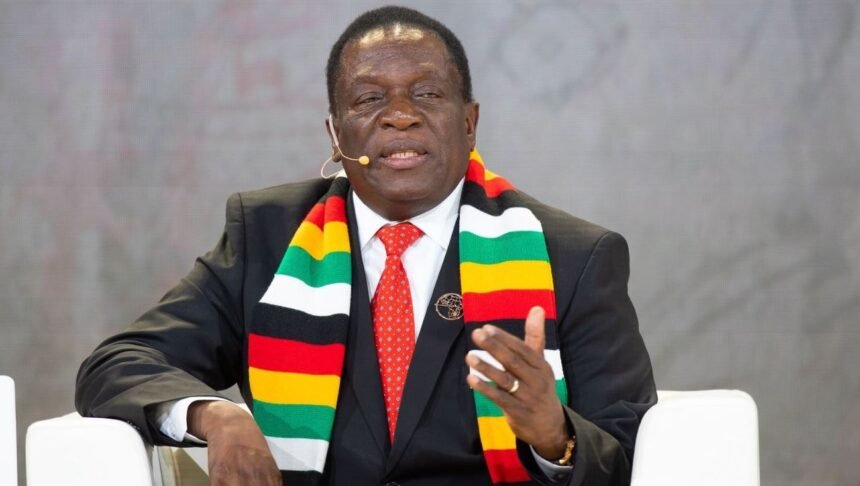HARARE, Zimbabwe (Elevation News) Zimbabwe’s ruling ZANU-PF party has announced plans to begin formal steps to extend President Emmerson Mnangagwa’s term by two years. This move could keep the 83-year-old leader in power until 2030.
Under the current constitution, Mnangagwa is expected to step down in 2028 after completing his second and final five-year term. Any extension would require a constitutional amendment to alter the term-limit provisions. The resolution, adopted at the party’s annual conference in the eastern city of Mutare, directs the government to “initiate the requisite legislative amendments,” according to Justice Minister Ziyambi Ziyambi, who also serves as ZANU-PF’s legal secretary.
Hundreds of delegates cheered as the motion passed, signalling strong internal support for the president’s continued rule. ZANU-PF, which has been in power since independence in 1980, holds a solid parliamentary majority that would make passing such legislation possible. However, some legal experts have cautioned that any constitutional change of this nature could face significant hurdles, including the possibility of national referendums. Constitutional law lecturer Lovemore Madhuku noted that the country’s 2013 charter mandates strict procedures for altering presidential term limits, including provisions that may prohibit changes benefiting an incumbent.
Mnangagwa has often described himself as a “constitutionalist” and previously stated he had no plans to remain in office beyond his current mandate. However, factions within ZANU-PF have increasingly called for him to stay in office until 2030, arguing that his continued leadership is vital for stability and the ongoing national development projects. The president’s supporters say that the proposal reflects popular demand and ensures policy continuity, while critics caution that it could entrench one-party dominance and erode democratic accountability.
Vice President Constantino Chiwenga, who led the 2017 military intervention that removed Robert Mugabe from power, is reportedly sceptical of the plan. His allies view the proposed extension as a potential barrier to their own ambitions within the party. The rivalry between pro-Mnangagwa and pro-Chiwenga factions has long shaped internal ZANU-PF politics and is likely to intensify as discussions over succession resurface.
Some party veterans, including Blessed Geza, a war hero and outspoken ally of Chiwenga, have voiced their opposition to the proposal. Geza has taken to social media to criticise what he describes as a “power grab,” urging citizens to resist efforts to undermine the constitution. His calls for protests have drawn little visible response so far, though police deployments in major cities have been reported to deter demonstrations.
Mnangagwa made no reference to the extension proposal in his closing remarks at the Mutare conference, while Chiwenga has also remained silent. Analysts say the silence may reflect ongoing negotiations within the party, where loyalty and political survival are closely intertwined.
The potential amendment comes at a time when Zimbabwe faces significant economic headwinds. Inflation remains high, power shortages persist, and many citizens face the rising cost of living. Critics argue that extending Mnangagwa’s term could deepen disillusionment among voters already frustrated by the slow pace of reforms and persistent hardship.
Supporters of the president, however, say continuity in leadership could help stabilise the economy and attract investment. They claim Mnangagwa’s “Vision 2030” development agenda, which aims to transform Zimbabwe into an upper-middle-income economy, requires more time to succeed.
If successful, the amendment would align Zimbabwe with several African nations that have extended presidential term limits in recent years. In countries such as Rwanda, Uganda, and Côte d’Ivoire, constitutional changes have enabled leaders to stay in power well beyond their original mandates, raising concerns among pro-democracy groups about a growing trend of “constitutional manipulation” on the continent.
Whether the plan moves forward will depend largely on internal ZANU-PF unity and public reaction. For now, the party appears determined to consolidate its hold on power. As the debate unfolds, Zimbabwe once again finds itself at a crossroads, balancing the promise of stability against the risks of eroding constitutional rule.








